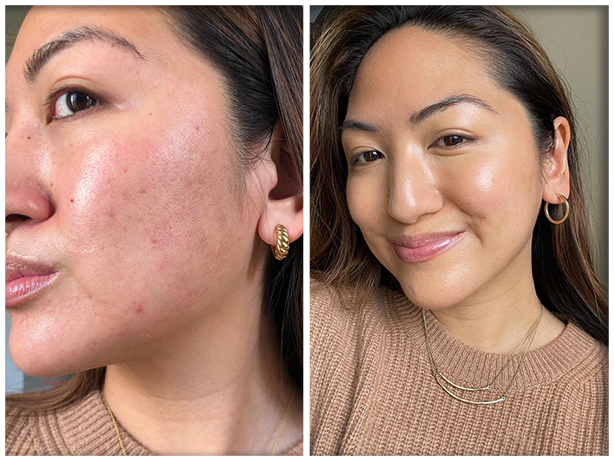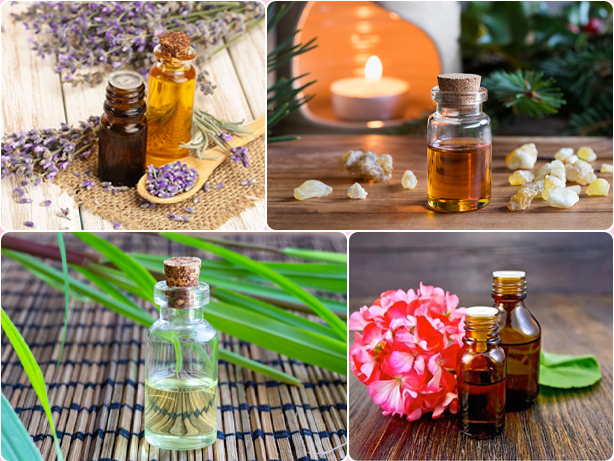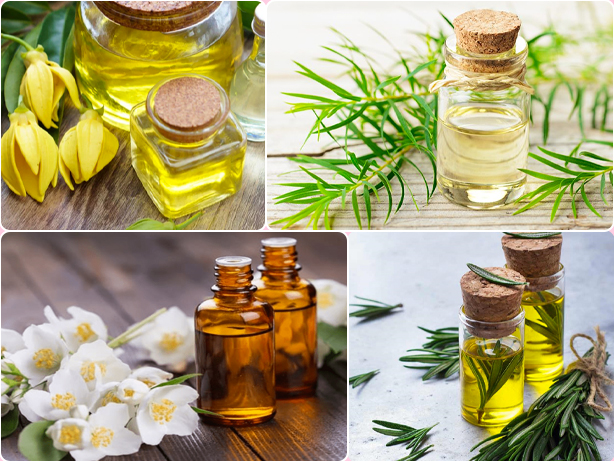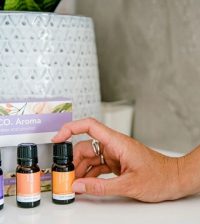Essential Oils: Natural Skincare Wonders for Oily Skin
Oily skin is the result of the sebaceous glands producing an excessive amount of oil. Genetics, hormone changes or stress may increase sebum production and if your sebaceous glands are in overdrive, they create excessive oil on the surface of your skin, which can lead to clogged pores and result in pimples and acne. Factors like humidity and heat can only make oily skin worse.
Oily skin and acne are challenging to manage and require proper treatment and regular use of products. There are many reasons why natural skin care for acne is better than regular products, but also there are natural oily skin products that can help you reduce symptoms without the use of prescription drugs or expensive skin care regimens. Many people choose to turn to alternative treatment options and essential oils are some of the most popular ones lately.

Essential oils are concentrated oils that come from flowers, leaves, plant stems, bark and roots. They are well known as a natural remedy for sleep and relaxation, but some have properties that can be used as a remedy for certain skin conditions. If you’re interested in trying essential oils specific to your skin type, consider talking to your dermatologist about the following essential oils which may help alleviate oily skin issues.
Essential Oils for Oily Skin
If your skin is oily, you know that it’s important to keep its oil production under control. It may be tempting to use heavy cosmetics to cover the effect of oily skin, but it can only make the condition worse. Instead, you can choose from a variety of oily skin products, including essential oils as a natural and safe way to treat your skin. Here are some of the most common ones used for oily skincare you can try at home.
Lavender
Lavender is probably the most versatile of all essential oils, also known for its antibacterial properties. It’s an essential oil with a pleasant, floral scent that has antifungal and anti-inflammatory properties as well, ideal for regulating oily skin and reducing the appearance and spread of acne.
Geranium
Geranium has a floral aroma and with its alkaline properties, it can help balance out skin oils and help even out hydration levels. It can help regulate sebum production and give balance to the congested skin. Its properties are suitable for regulating sebum production and reducing the appearance of oily skin, as well as healing acne scars.
Frankincense
Frankincense may help alleviate oily and acne-prone skin while providing lipids for aging skin.
Lemongrass
The natural astringent properties of lemongrass can help fight pimples by acting as an antimicrobial while removing excess dead skin at the same time.

Ylang Ylang
This essential oil has a beautiful sensuous aroma and is a great choice for balancing oily skin. It’s considered one of the least irritating oils for the skin.
Tea Tree
Known for its antiseptic, antimicrobial and antibacterial properties, tea tree oil is perfect for reducing the spread of bacteria. It’s extremely potent and can sensitise the skin in the long run. It’s also known as melaleuca oil, derived from the tea tree, a multi-trunked tree found in Australia.
Rosemary
Rosemary oil is known for its anti-inflammatory, stimulating and analgesic properties. Some of its key ingredients, such as esters, may help reduce sebum production and prevent oily skin. It’s also good for blood circulation keeping the skin bright and healthy.
Jasmine
The properties of jasmine oil can balance the excess sebum production and reduce the conditions of oily skin. This essential oil comes from the flower of the jasmine plant, which is native to tropical regions in places like Asia and Australia.

Tips on How to Use Essential Oils for Oily Skin
Essential oils provide you with a natural, pure way to control your skin’s oil production. They can be used in primarily three ways. You can breathe them in using an essential oil diffuser, put a few drops in bathwater or rub them onto the skin. When it comes to using essential oils for oily skincare, they are most likely to work best topically.
While this entails using small drops of oil, it’s important to remember that you need to always dilute your essential oil with a carrier oil, such as almond, jojoba or olive oil, before applying it to your skin. Topical uses of essential oils may lead to irritation and rashes if not diluted beforehand with a carrier oil.
When applying essential oils topically to your skin, make sure to use a patch test ahead of time to make sure you’re not allergic and never use them around your eyes. Even though these products for oily skin are pure with no additives, they are highly concentrated and can be irritating to the skin if used in an undiluted form.

A patch test involves placing a small amount of the diluted essential oil on your skin, on the forearm, for instance. Then wait 24 hours to check for allergic reaction before using it on a larger area of skin.
Bathing in essential oils can also work well for certain skin conditions, especially if you’re trying to treat hard-to-reach areas like your back.
If you experience any negative reactions and your skin becomes sensitive to any product, stop using it and contact your doctor or dermatologist. If oily skin symptoms such as acne are severe, it’s best to seek medical help because they may lead to infection or scarring.







